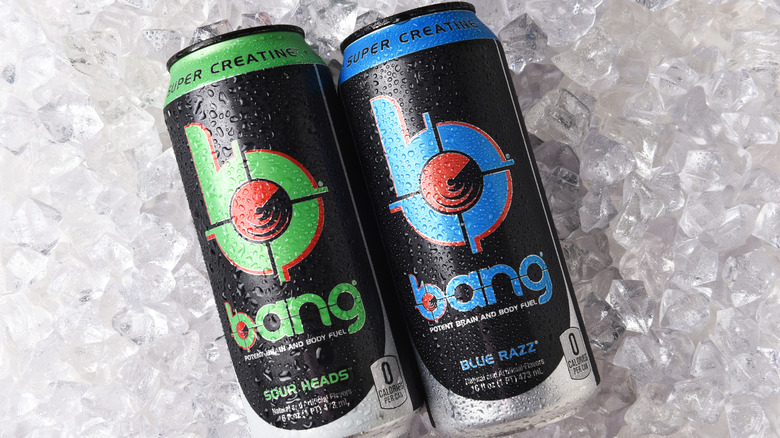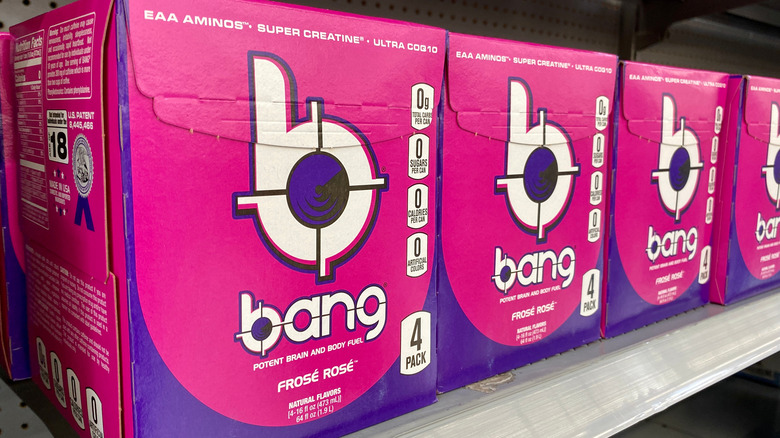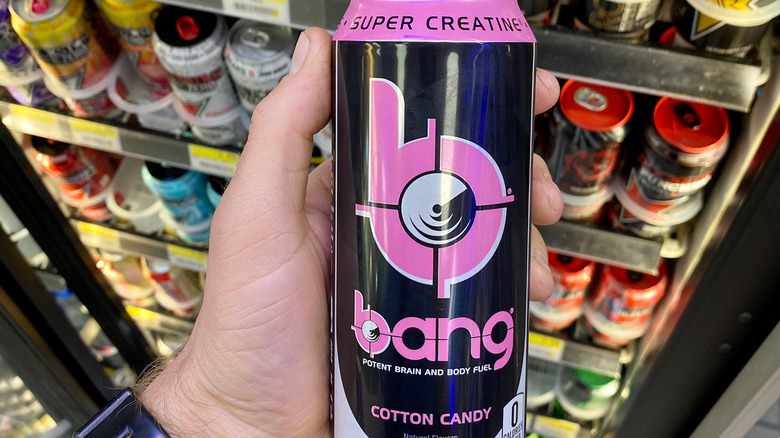Are Bang Energy Drinks Bad For You?
In recent years, a new brand of energy drinks has exploded onto the scene with a "bang." Advertised on its website with the slogan, "Fuel Your Destiny," Bang is an energy drink that not only provides a much-needed boost, but does so without any calories or the addition of sugar. Knowing this, Bang might sound like a great option when trying to keep calories and sugar intake low, but are there other ingredients in this beverage that we should be wary of?
Of the many ingredients contained in a can of Bang, caffeine, creatine, and artificial sweetener additives are the ones to keep an eye on. According to Caffeine Informer, a standard 16-ounce can of Bang contains the same amount of caffeine as 3 cups of coffee. By drinking 1 can of Bang, you'll already find yourself close to the U.S. Food and Drug Administration's recommended intake of no more than 400 milligrams of caffeine a day — the equivalent of roughly 4-5 cups of java.
While it would take significantly high amounts of caffeine to result in an overdose, overconsumption of caffeinated beverages, such as energy drinks, can result in rapid or abnormal heartbeat, headaches, insomnia, and dehydration (via U.S. National Library of Medicine).
Bang contains ingredients linked to various health conditions
Another ingredient found in Bang is creatine. Creatine is a natural amino acid found in our muscles and brain, and can be consumed through seafood and other meats (via Mayo Clinic). While generally deemed safe in moderation, research on creatine is minimal. According to WebMD, some cases have shown that consistent creatine consumption may heighten bipolar disorder symptoms, worsen kidney disease, and when taken with caffeine, may also accelerate the progression of Parkinson's disease.
Additionally, acesulfame potassium and sucralose are two artificial sweeteners used in Bang to boost flavor. Both additives have been linked to various health issues, with sucralose, in particular, having been associated with cancer (via Vlogmail). The sweeteners have also been shown to induce hunger cravings, thus canceling out the zero-calorie benefits of Bang when reaching for another sugary snack.
Although tasty, drinking Bang may not be worth the potential health outcomes if consumed frequently.
Heed the warnings on the can
The company reports that one can of their Bang energy drink products contains 300 milligrams of caffeine (via Bang). Because these beverages are considered high in caffeine, they are not a good fit for everyone. Specifically, the warning label on the can advises that those who are pregnant or nursing avoid drinking them. Experts at Kids Health report that excessive caffeine consumption amongst pregnant individuals may impact the healthy growth and development of the baby.
Additionally, the warning label also states that those under the age of 18, individuals with health conditions, or those who take prescription medications should not drink Bang energy drinks either. The drink also should not be used in combination with any other caffeinated products. Lastly, the label also reinforces the side effects of caffeine, reminding consumers that caffeine consumption can induce irritability, nervousness, sleep difficulties, and increased heart rate.



